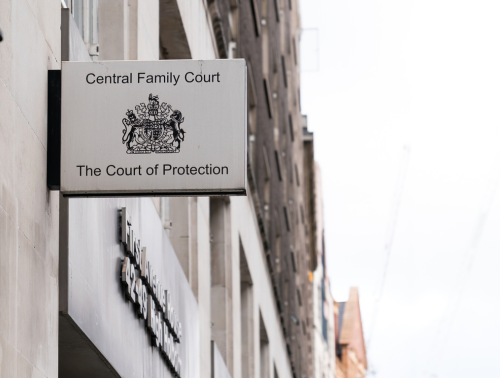
Family court hearings are legal proceedings that take place when individuals are unable to resolve family-related disputes privately and require decisions to be made. These hearings are conducted in the family court, which deals specifically with matters relating to relationships, children, and finances.
Family court hearings cover matters relating to private law and public law.
Private Law Matters
Private law matters refer to disputes between private individuals, usually family members, regarding the following issues listed below:
- Child Arrangements: Making decisions on where the child should live and how much contact time each parent should receive. The parents may need assistance to agree on taking the child on holiday or their schooling and other parenting decisions. These cases occur post-separation and divorce.
- Financial Issues: When separating or getting a divorce, a major impact can be splitting the finances, property, and any outstanding debts. The court can decide fairly on how to divide the assets and make a legally binding decision.
- Other Family Disputes: Grandparents can often play a vital role in the child’s upbringing, offering stability and a strong family connection. Unfortunately, grandparents do not have an automatic legal right to have contact with their grandchildren. However, the courts can step in and remedy this as the law does recognise the importance of family relationships and will look at the best interests of the child.
Public Law Matters
Public law matters involve situations where the local authority becomes involved in the child’s life due to concerns about their safety and wellbeing. These cases tend to be dealt with by the family court and aim to protect children who may be at risk of harm. The court can make several orders in public law matters, such as:
- Care Orders: This allows the local authority to receive parental responsibility, and the child could be placed in a foster home or with relatives.
- Emergency Protection Orders: This is a short-term order used when a child needs immediate protection. The child could be removed from the home for up to 8 days (extendable by 7 days).
Public law matters and the court resolutions aim to protect the child and to ensure matters are dealt with for their best outcome.
When Are Family Court Hearings Necessary?
Family court hearings are typically a last resort, used when other methods of resolving disputes have failed. This process may be required in the following situations:
- After a formal application is made: An individual needs to apply to the court for a specific order.
- When no agreement can be reached: Mediation is encouraged in the first instance as it avoids the stress of attending court and the additional legal fees. A hearing is required when mediation fails and when discussions break down between the parties.
- When a child’s safety is at risk: Urgent court action can be taken when there are concerns about abuse, neglect, and any serious threat to a child’s welfare.
- Following a First Hearing Dispute Resolution Appointment (FHDRA): Once an application is submitted, the court usually schedules this early hearing to identify key issues and encourage resolution without a full trial.
- After a fact-finding hearing: The court may hold a hearing to establish the facts before making a decision when there are serious allegations, such as domestic abuse.
- After a final hearing: If earlier attempts to resolve the matter fail, both sides present their evidence at a final hearing. A judge then makes a binding decision.
Family court hearings can be daunting, but they are there to support the best outcome for the parties and assist with fairness when no agreement can be reached privately. The court aims to support families in difficult times, and the first consideration is always for the child’s best interest when making decisions.
Our Surrey solicitors at Howell Jones are on hand to help. Please feel free to contact our Surrey family law team on 0800 011 9813 to receive expert legal advice.